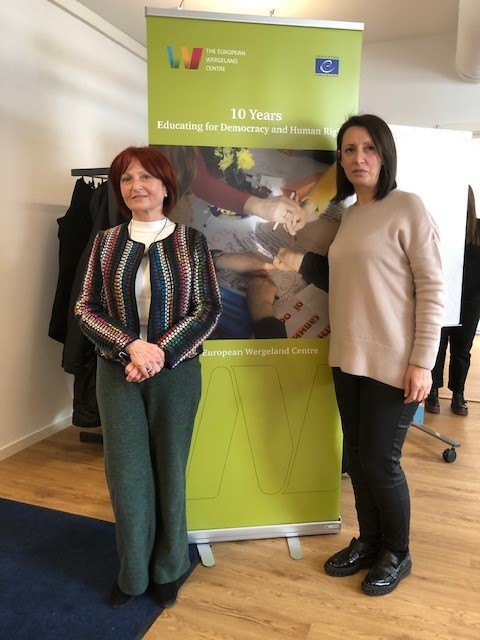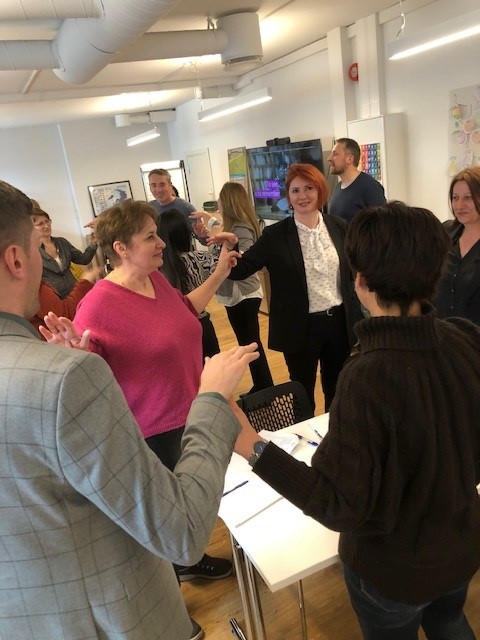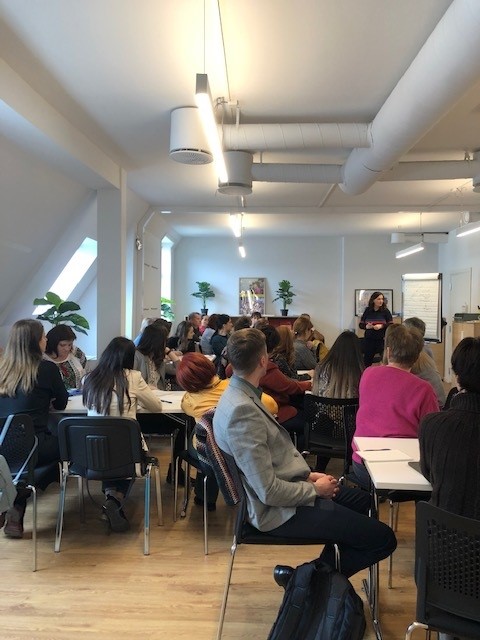We sat down with the Executive Director of the Romanian Social Development Fund (RSDF), Mrs.Mihalea Peters, to ask her some questions when she participated at our training for Romanian teachers in Oslo in April 2022.
Organized by EWC, the training is part of our common project Inclusive Education and Competences for Democratic Culture, and aims to strengthen the capacity of teachers to build democratic school cultures and promote inclusion in schools.
The teachers have been selected from schools taking part in projects financed under the Local Development, Poverty Reduction and Enhanced Roma Inclusion Programme, implemented in Romania under the EEA and Norway Grants 2014-2021.
1. How did you experience the training?
I found it very useful and a pleasant experience in a nice and good environment.
2. What do you see as the most important take-away for the teachers taking part and how do you think they will be able to implement what they learned in practice at their schools?
The most important take-away, in my view, is that the teachers, in their position of vectors of change in their communities, understood that it is crucial not only to know what to teach, but it counts a lot how you do it and with what attitude. We know that in Romania the teacher is a very important figure in the community in general, in particular many of the ones participating to this module of training work and live in rural areas where they really can contribute to the life of the community in general, being respected and listen.

3. Why is it important for educators in Romania to strengthen their competences on democratic culture and inclusion in schools?
Democratic competence is not a course in the curriculum in Romania and this is sad. We see everyday acts of non-democratic behavior in schools also, at the level of the students, teachers, parents…
Even if the training lasted four days, we could see how participants changed their thinking to ‘more’ democratic, ‘more’ inclusive, and in general more positive towards diverse societies. And they all were able -in the last day of the training- to draw a plan for the future, including adjustments of their way of acting in school and in the community. Most of them were surprisingly transformed, in a positive way.
4. How do you think this project improves the inclusion of Roma and marginalized groups in education in Romania?
We initiated this bilateral project because we believe that education is an important pillar in our Local development Program, a tool of producing improvements in the society. In fact, all the areas of the program, Roma inclusion and empowerment, Children and youth at risk, Local development and poverty reduction, Human rights, Good governance, have in common besides inclusive education (targeted in almost all financed projects), measures to enforce human rights respect, opportunity for equal chances, equity as main characteristics of inclusiveness. And if teachers promote inclusiveness and feel that teaching is about respect of diversity, then a part of the work towards reducing marginalization is done. Our present and future intention is to train as many teachers as possible within the existent resources, as it is clear that the benefits are over the expectations.
5. How do you think this project contributes to improving the quality of education in Romania?
Quality in education is very influenced by the people working in education, by their knowledge, skills and competences. Increasing the level of understanding of concepts, developing skills and improving behaviors contributes at increasing the quality. It was one of the aims of the training: to create the premises for a better quality.
5. With the ongoing war in your neighboring country of Ukraine, do you think competences on democratic culture and inclusion will be important for Romanian teachers as refugee students starts in your schools? If yes, why and how?
Refugee students are elements/part of human diversity, a lot of the training focused on that, so it will definitely be important and useful.


6. What does EWC contribute with in the project and how would you describe the centre as a partner?
EWC is an excellent partner, professional, open, easy to work with, considering their good name and busy schedule. We had in plan since some time to put in place this partnership but only now we found the means to do it. Their specific contribution was to organize and deliver the training and everything was very good and as planned. I hope to have future opportunities to work together.